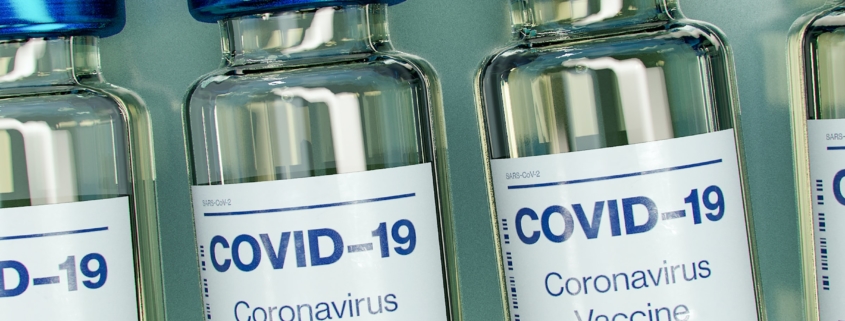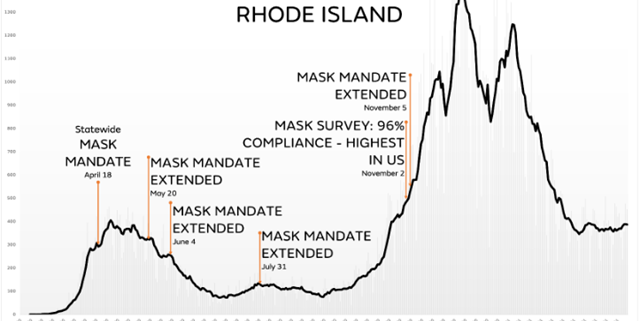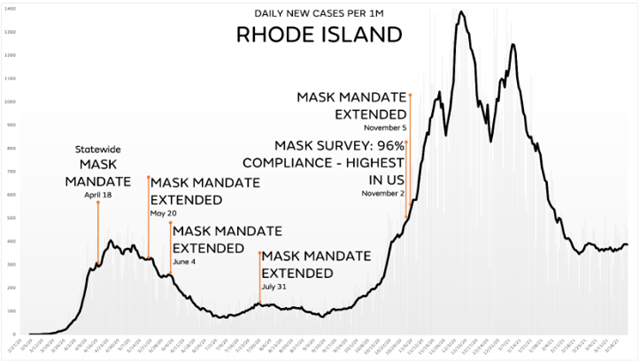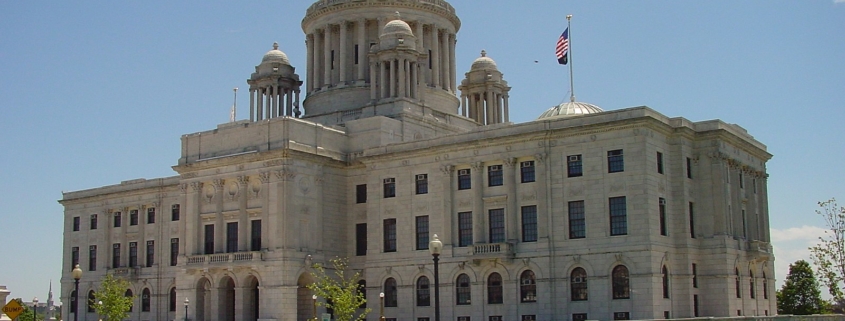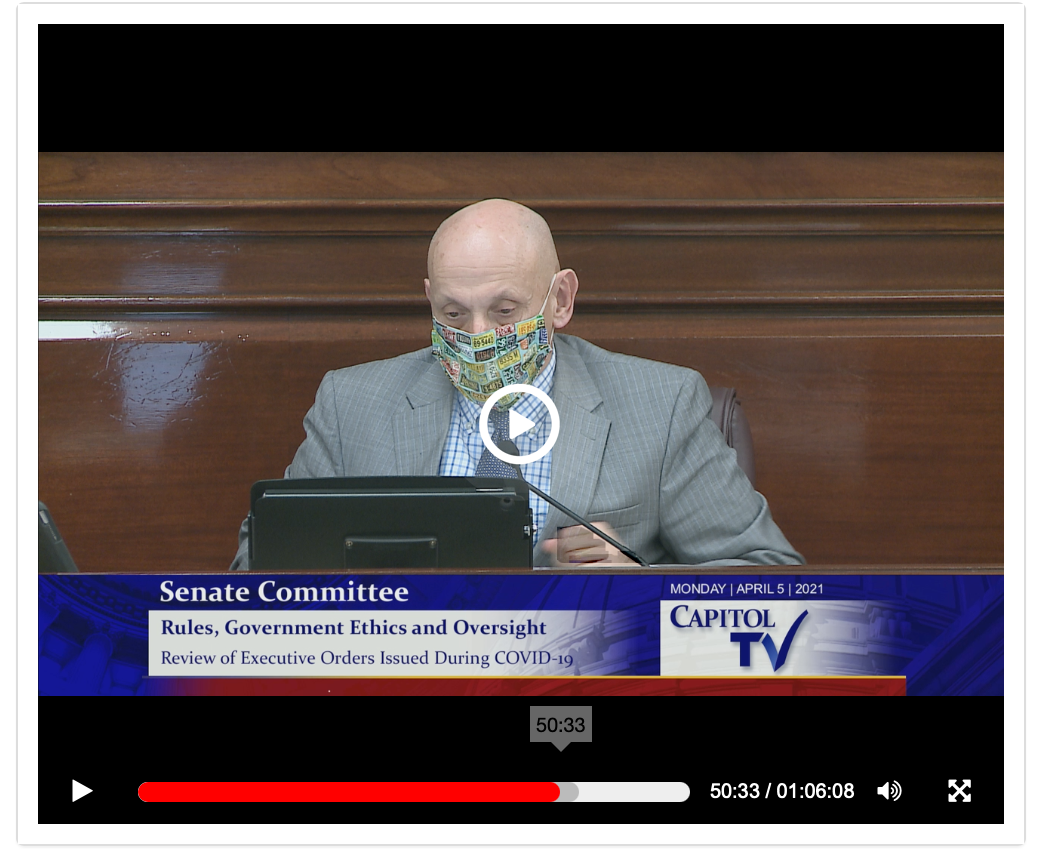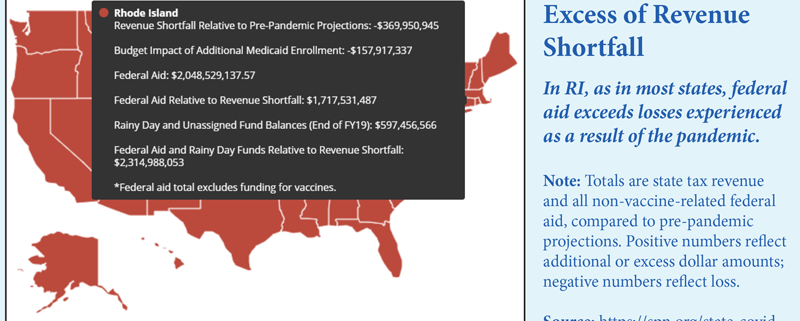Policy Brief: Natural Immunity Should be Included as a Vaccine Exemption
Executive Summary: Analysis of state and international research data, as performed by Dr. Andrew Bostom, along with historical norms, support the conclusion that “natural immunity” should be allowed as a “contraindication to vaccination”, or exemption, to mandated vaccinations.
Bostom, an adjunct medical scholar to the RI Center for Freedom & Prosperity and a Brown University credentialed epidemiologist, when assessing the benefits and risks of natural immunity to Covid-19 as compared with immunity from the vaccine, has joined an increasing number of medical professionals and institutions in concluding that the body’s natural immune system provides a more robust and longer lasting protection against Covid-19 than do the currently offered vaccines.
With thousands of vital health care professionals in Rhode Island facing termination or loss of their medical licenses if they do not comply with the non-science-based October 1 vaccine mandates imposed by the Rhode Island Department of Health (RIDOH), the Center argues that more health care services can be safely delivered if more healthcare workers are allowed in the field.
Currently, the RI DOH only allows post first-dose vaccine adverse reactions, a history of myocarditis or pericarditis heart conditions, or recent Monoclonal AntiBody Treatments as viable contraindications for Covid-19 vaccinations.
Dr. Bostom studied ample data from an Israeli Health Maintenance Organization; from a United Kingdom Healthcare worker survey; and from data supplied by the RI DOH. Bostom summarized the key findings from the published Israeli research (full text and citations below), as follows:
-
- The risk of new clinical symptomatic infection is 7.0 times lower among those previously infected and who were not vaccinated, as compared to those with no prior infection, who were fully vaccinated
- The risk of Covid-19 hospitalization is 6.7 times lower among the same cohorts describe above
Further, not only are vaccinations for those previously infected not necessary, the data indicates such vaccinations would cause increased health risks:
- Based on the extremely low rate of transmission among the previously infected, it would take 883 vaccinations of previously infected healthcare workers to prevent just ONE new asymptomatic case among that group
- Reactions to these 883 vaccinations would produce 80 instances of “moderate to severe symptoms”
Finally, July 2021 data supplied by the RI DOH itself appears to validate the above findings, while also suggesting that vaccinations do not reduce spread more than natural immunity:
-
- 30% of new Covid-19 infections in RI were ‘breakthrough’ cases, occurring among fully vaccinated persons
- Of the 2127 people infected in July, only 3.4% had prior infection, regardless of vaccination status
- The same ratio (3.4%) of those infected in July, who had prior infection, were fully vaccinated
In Michigan, Western Michigan Spectrum Health is now allowing its healthcare workers to use natural immunity as a Covid-19 vaccine mandate exemption. Prominent medical professionals such as Harvard Medical School ProfessorMartin Kulldorff, Dr. Marty Makary from the Johns Hopkins School of Medicine, Dr. Scott Atlas from Stanford University, and immunologist Dr. Hooman Noorchashm are among many esteemed experts who have also publicly expressed their views on the importance and effectiveness of natural immunity. Even Dr. Robert Malone who invented the messenger RNA vaccine method agrees that T and B cell immunity is superior to spike-based vaccines.
In conclusion, while the Center opposes government- imposed mask and vaccine mandates, the data clearly demonstrates that “natural immunity” is an important policy consideration; and that the existing RI DOH healthcare worker vaccine mandate, for as long as it is allowed to legally stand, must be immediately modified, as the science overwhelmingly suggests, to include natural immunity as an approved case for exemption.
Detailed Findings:
Mandatory Covid-19 Vaccination for Previously SARS-CoV-2 Infected Rhode Island Healthcare Workers Yields an (Unacceptable) Risk / “Benefit” Ratio of Eighty to One: A Published Evidence-Based Estimate, Confirmed by Rhode Island Department of Health July, 2021 Data
Originally published on 13th September 2021 | by Dr. Andrew Bostom
When assessing quantitatively the benefit/risk (or risk/benefit) ratio for any therapeutic intervention, two simple numerical standards are employed: the number needed to treat (NNT) to prevent a single health outcome of interest, and the number needed to harm (NNH), or each adverse event caused by the same therapy, per the number to whom it is administered (1). Both NNT and NNH are dependent on absolute risk differences between the treated and untreated comparison groups. The NNT/NNH or NNH/NNT, provide quantitative estimates of the benefit/risk, or risk/benefit ratios, respectively.
The question of whether to mandate covid-19 vaccination of previously SARS-CoV-2 infected healthcare workers can be uniquely illuminated by calculating NNT and NNH from recently published data (2,3). Moreover, as I will demonstrate, the NNT/NNH calculations from these published findings (2,3) are independently validated by Rhode Island Department of Health July, 2021 data just released August 31, 2021 (4,5).
Data from the Israeli Maccabi Health Maintenance Organization (HMO) have revealed that prior SARS- CoV-2 infection among those unvaccinated against covid-19 conferred a 7.0-fold decreased risk for new clinical, symptomatic SARS-CoV-2 infection, and a 6.7- fold lower risk for covid-19 hospitalization, relative to those with no prior SARS-CoV-2 infection, but fully vaccinated against covid-19 (2). Although secondary analyses from this Israeli HMO cohort found, similarly, that covid-19 vaccination of previously SARS-CoV-2 infected persons did not reduce either symptomatic, clinical SARS-CoV-2 infections, or covid-19 hospitalizations, the occurrence of asymptomatic SARS- CoV-2 infections was reduced (2). This latter finding can be used to calculate the NNT for prevention of new, asymptomatic SARS-CoV-2 infections, afforded by covid-19 vaccinating those previously infected with SARS-CoV-2, and recovered from their infection.
The NNT for asymptomatic infection prevention, using the absolute risk reductions, is calculated as follows, from the formula, NNT=1/absolute risk reduction:
37/14,029=0.0026 in the unvaccinated, previously infected, vs. 20/14,029=0.0014, in the vaccinated, previously infected. The absolute risk difference is a mere 0.0012 so 1/ 0.0012 gives a NNT of 833 to prevent 1 asymptomatic infection. (Also, the absolute risk reduction is only 0.12%; another way of expressing this vanishingly small benefit) NNH can be calculated from published United Kingdom Healthcare worker survey data comparing the reactions of those covid-19 vaccinated with and without prior SARS-CoV-2 infection (3). The proportion reporting one moderate to severe symptom was higher in the previous SARS-CoV-2 infected group (56% v 47%, OR=1.5 [95%CI, 1.1–2.0], p=.009), with fever, fatigue, myalgia-arthralgia and lymphadenopathy significantly more common. NNH is 56%-47%=9%, or 0.09, then 1/0.09=11.1. Thus, for each ~11 previously SARS-CoV-2 infected healthcare workers vaccinated, 1 developed a “moderate to severe symptom,” including “fever, fatigue, myalgia-arthralgia and lymphadenopathy (3).”
Comparing the NNT (from 2)/ NNH (from 3) ratio, 883/11, indicates that if you covid-19 vaccinated n=883 previously SARS-CoV-2 infected persons (for example, healthcare workers), ONE asymptomatic SARS-CoV-2 infection would be prevented, while EIGHTY persons vaccinated would experience “moderate to severe symptoms,” including “fever, fatigue, myalgia- arthralgia and lymphadenopathy.
Finally, July, 2021 SARS-CoV-2 (covid-19) infection data collected by the Rhode Island Department of Health, with presentation of the findings by both vaccination, and prior infection status, provide independent validation of these NNT/NNH results (4,5). While 30% of these total (n=2127) new SARS-CoV-2 infections occurred among persons fully covid-19 vaccinated (639/2127), only 3.4% of those with a prior infection, regardless of vaccination status, were infected in July (73/2127). Fully vaccinating those with a prior covid-19 infection did not lower this percentage at all (22/639=3.4% fully vaccinated; 51/1488=3.4% not fully vaccinated).
REFERENCES:
1) Citrome L. “Show me the evidence: using number needed to treat”. South Med J. 2007; 100: 881- 4. https://pubmed.ncbi.nlm.nih.gov/17902287/
2) Gazit S, Shlezinger R, Perez G, Lotan R, Peretz A, Ben-Tov A, Cohen D, Muhsen K, Chodick G, Patalon T. “Comparing SARS-CoV-2 natural immunity to vaccine-induced immunity: reinfections versus breakthrough infections”. medRxiv August 24,2021. https://doi.org/10.1101/2021.08.24.21262415
3) “Self-reported real-world safety and reactogenicity of COVID-19 vaccines: An international vaccine-recipient survey”. Mathioudakis AG, Ghrew M, Ustianowski A, Ahmad S, Borrow R, Papavasileiou LP, Petrakis D, Bakerly ND medRxiv, February 26, 2021. https://doi.org/10.1101/2021.02.26.21252096
4) “Prior infection, vaccination status, and age-stratified Rhode Island Department of Health, July 2021 data on covid- 19 infections, hospitalizations, and deaths sent to Sen. Delacruz and Rep. Chippendale,
8/31/21”. https://www.andrewbostom.org/2021/09/prior-infection-vaccination-status-and-age-stratified-rhode-island- department-of-health-july-2021-data-on-covid-19-infections-hospitalizations-and-deaths-sent-to-sen-delacruz-and-rep-
chippendal/
5) “Rhode Island Department of Health, July 2021, Data Reveal Prior Covid-19 Infection in the Unvaccinated (Natural Immunity)~8.5-Fold More Protective Against New Covid-19 Infections, and ~1.5-Fold More Protective Against Covid-19 Hospitalizations, Vs. Full Vaccination, Without Prior
Infection”. https://www.andrewbostom.org/2021/09/rhode-island-department-of-health-july-2021-data-reveal-prior- covid-19-infection-in-the-unvaccinated-natural-immunity8-5-fold-more-protective-against-new-covid-19-infections- and-1-5-fold-more-p/

